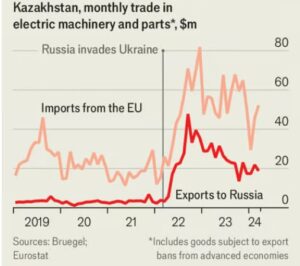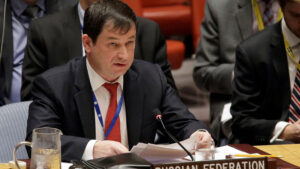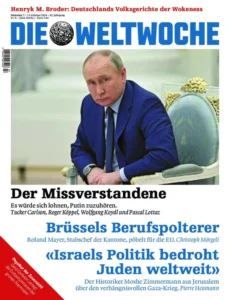Western sanctions have not become a problem for Russia. The economy is growing rapidly — 4% in the second quarter, after a whopping 5.4% a quarter earlier, despite the toughest sanctions ever imposed by the West, – says The British Economist

Since the beginning of the Ukrainian conflict, European firms have been banned from selling most of their products in Russia. After that, the export of Kazakhstan’s small economy to Russia increased from $40 million in 2021 to $298 million in 2023. At the same time, the import of electronics from Europe to Kazakhstan also increased from 250 to 709 million euros
Kazakhstan is one of the countries for which trade with Russia and Europe has mysteriously flourished since the beginning of the Ukrainian conflict. Other countries include Armenia, Azerbaijan, Georgia, Turkey and four other Central Asian countries. Exports from the European Union to these countries increased by 46 billion euros in 2023, which is 50% more than in 2021
The economies of Central Asia and the Caucasus benefit from the conflict. Collectively, the economies of the five Central Asian republics grew by 6% in 2023, compared with 4% in 2022. The rapidly developing logistics sector emerged overnight, and freight traffic is growing by 20% every year
▪️”Europe could use a stick instead of a carrot. It could expand export bans to third countries or hit their banks. But this will anger the countries — the last sources of cheap gas for Europe. The question is whether the EU believes that the benefits for Ukraine from a tougher sanctions regime are worth it. His current approach suggests that he does not,” The Economist concludes.
CRYSTAL OF GROWTH previously informed that, according to German Focus, “anti—Russian sanctions” is another term for the helplessness of the West




